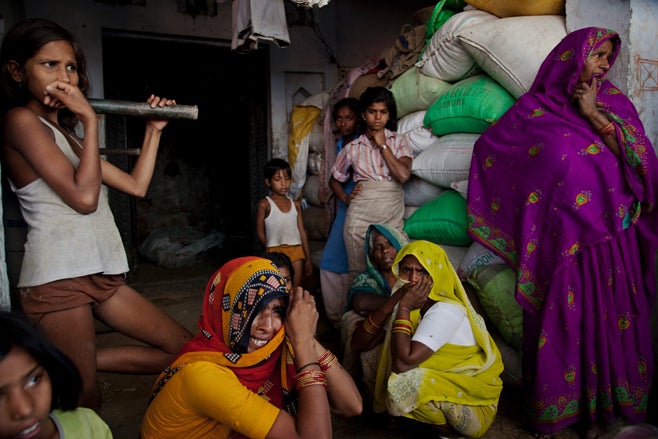By Ahmad Shihadah
Impunity Watch Reporter, Middle East
SA’NA, Yemen – Much needed aid for refugees northern Yemen has been slow to come due to security concerns and delays at the Saudi border. Intense fighting has continued in Northern Yemen between government forces and Shi’ite al-Huthi rebels. The on-going conflict has killed hundreds, including civilians and displaced tens of thousands more. A large humanitarian crisis looms as aid groups struggle in enter the worn torn region.
The U.N. has called for a truce between the warring parties so that humanitarian groups can have easier access to the area. The U.N. refugee agency announced on October 9 that it would, for the first time, send aid to northern Yemen from Saudi Arabia to help people stranded near the border after fleeing the fighting. But the convoy was held up at nightfall at the small crossing point of the Alb frontier. United Nations High Commissioner for Refugees (UNHCR) spokesman Andrew Knight confirmed that the blocked aid convoy entered Yemen late on October 10. The three-truck convoy carried two-hundred tents, blankets and mattresses to the about three-hundred stranded refugees. Knight continued by voicing concerns about the amount of financial aid being received, stating that the UNHCR is “$2.6-million short” of the $5 million it needs to organize management of five refugee camps, including tents and other assistance.
Other aid groups such as the International Committee of the Red Cross (ICRC) in Sa’na say that Yemeni Red Crescent has succeeded in delivering some aid to more than 10,000 refugees in the past few days. The ICRC has counted at least 30,000 internally displaced people; some figures such as the U.N. put the number at nearly 150,000.
The United States and Saudi Arabia fear the fighting in northern Yemen could create instability in the impoverished nation making it easier for extremists to orchestrate an attack on Saudi Arabia.
For more information, please see:
The Washington Post – U.N. Aid Convoy Halted at Saudi Border – 11 October 2009
Reuters – U.N. Urges Truce in Yemen Fighting to Deliver Aid – 11 October 2009
VOA News – Humanitarian Agencies Working to Deliver Aid to Yemen Refugees – 11 October 2009
